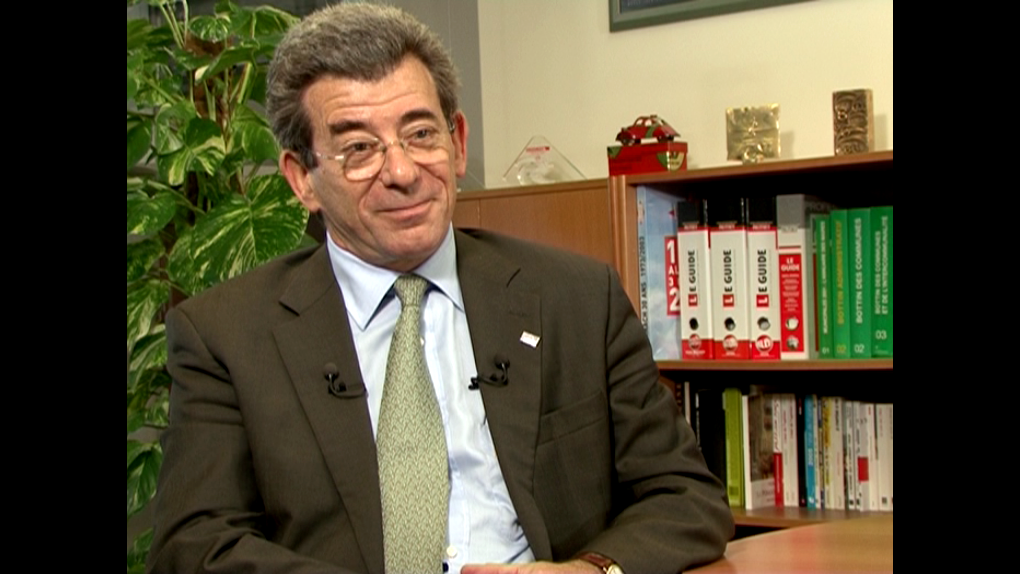EuroBusiness Media (EBM): Sodexho Alliance, the leading global provider of food and facilities management services, just reported first half-profit for its 2007 fiscal year. Michel Landel, welcome. What are your comments on the company's overall performance in the first-half?
Michel Landel (ML) : We had good results during this first half of the year in all parts of the world and in all our activities. Organic growth was 8.2%, at constant exchange rate. We also had a 20.5% increase in our operating profits, and close to 29% in net profit, and the free cash flow was 140 million euros, so good results. And we expect this year to have an operating profit growth close to 12%.
EBM: When you reported your first-half sales on April 4, you raised your sales target for the full-year. The market expects higher growth to have a direct impact on your bottom line. Therefore, are you today in a situation to give the market a higher margin guidance for the full-year?
ML: Well, originally, we set our guidance to grow our operating profit by 10%, and now we are revising this guidance and we say that we expect to grow operating profit in the 12% range for this fiscal year
EBM: In what ways can you improve your margins going forward?
ML: Well, basically, we have four ways to improve our margin, four levers. First of all, I must say that we've set an objective for ourselves to improve our margins by 15 to 20 basis points on average in the next several years. So four levers: 85% of our costs are food purchasing and labour costs. So, we have a worldwide initiative on purchasing, we have called this worldwide initiative "Five Star Project" and we expect to save roughly 1.5% on our total purchasing volume every year in the next several years. That's one thing. The second thing is labour productivity. We have initiatives across the globe on labour productivity in all our subsidiaries to improve labour productivity, and we have developed specific programmes for that. The third lever is obviously the organisational effectiveness of a group of our size. Again there are a lot of opportunities here to challenge the way we work on a normal basis. And the fourth level is all related IT issues. Of course we are investing a lot in IT. This is a tremendous opportunity for us to improve our IT programmes across the globe.
EBM: It's unclear to certain analysts whether your 7% forecast for average organic growth remains valid no matter what the market conditions. Could you please clarify whether 7% is the forecast you stand by, even during times of economic slowdown?
ML: Again, we've said that our ambition was to grow our top line on average by 7%. We are very, very strong in markets like healthcare, education, defence. And in those markets we are less subject to economic cycles. And we have a very strong position, a very comprehensive offering, and we are number one in the world. The potential for growth in these markets is enormous. Now, even being number 1 on those markets, we still remain very, very active in what we call the corporate market, where we have a strong position as well, which is more subject to economic crisis. But because we are now providing a full scope of services, our goal being to improve the quality of life of the people who live in the locations where we do our business, where we perform our business, we are very confident that we can grow overall our business by 7% on average.
EBM: Your gearing is low and your balance sheet is now quite strong, prompting some analysts to wonder whether you plan on giving cash back to shareholders through share buybacks or an exceptional dividend perhaps?
ML : Yes, in the last couple of years we have done a good job decreasing our gearing which is now 25%, close to 25%. We have again been very consistent in saying our objective is to focus on organic growth. And when I say that, we will continue to invest in developing IT systems, in acquiring talent, in developing HR programmes, this is fundamental to our growth. We will continue to de-leverage. We will continue to pay dividends - as you know we pay half of our free cash flow every year in dividends -- and we've said also that we are seeking to make acquisitions, specifically in the voucher business and also in acquiring facilities management companies, specifically on the hard FM side of the business.
EBM: And finally, your balance sheet could also, as you suggested, be leveraged to make acquisitions. For example, the market expects you to make acquisitions, as you've mentioned, in the facilities management segment, which is the fastest growing part of your business. What is your acquisition strategy going forward? What would be the ideal geographical zone and size of potential targets? In total, how much money do you plan to devote to acquisitions?
ML: We have said, again, that we are seeking to make acquisitions, to grow our expertise in facilities management, and that's true everywhere in the world. We are interested in making those acquisitions in North America, in Europe, in Asia, in South America. The size of these acquisitions really depends on what type of targets we might have. So, we're looking at the market today, but in any case, we will make acquisitions that truly fit our strategic intent. That's first. Acquisitions that we can really also integrate in our culture - so we have to have a cultural fit - and of course, it has to be at the right price.
EBM: Michel Landel, CEO of Sodexho Alliance, thank you very much.


